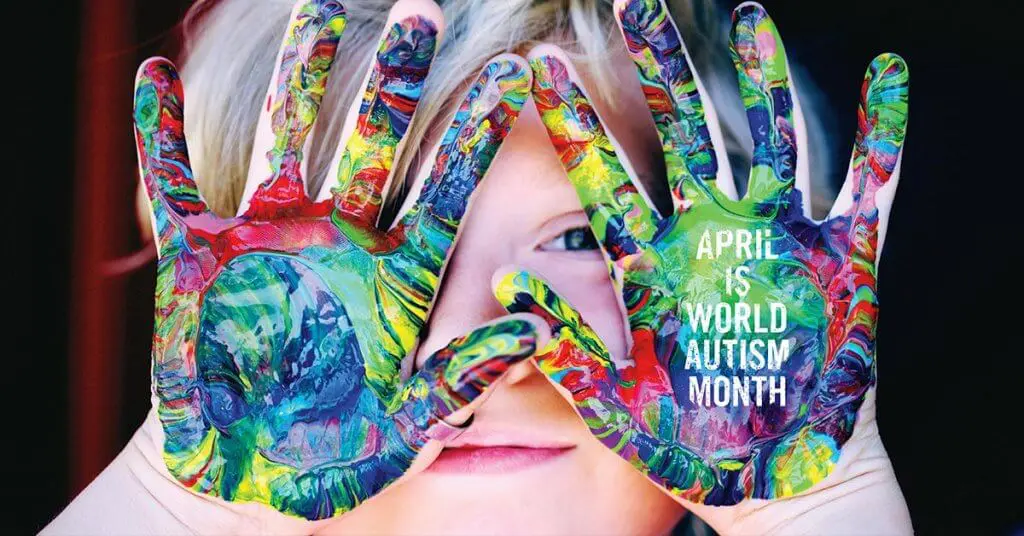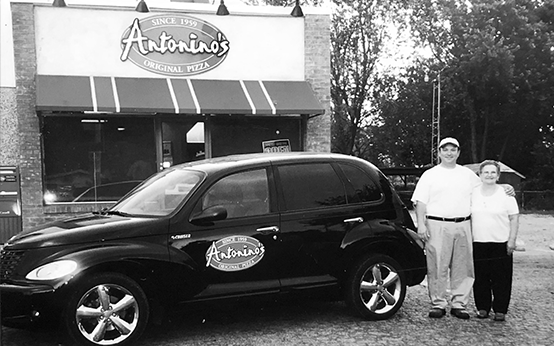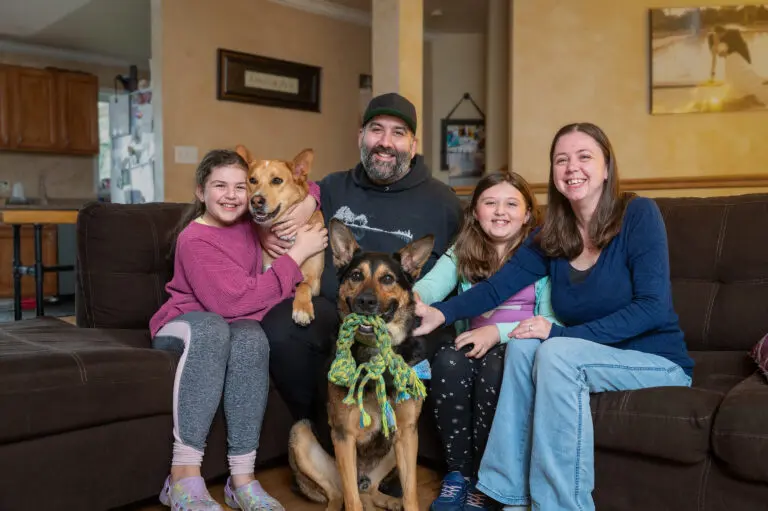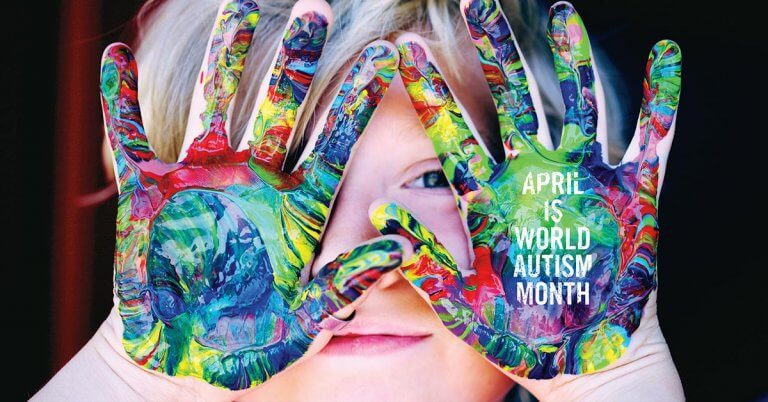A poem by Emily Perl Kingsley
WELCOME TO HOLLAND
I am often asked to describe the experience of raising a child with a disability – to try to help people who have not shared that unique experience to understand it, to imagine how it would feel. It’s like this…
When you’re going to have a baby, it’s like planning a fabulous vacation trip—to Italy. You buy a bunch of guide books and make your wonderful plans. The Coliseum. The Michelangelo David. The gondolas in Venice. You may learn some handy phrases in Italian. It’s all very exciting.
After months of eager anticipation, the day finally arrives. You pack your bags and off you go. Several hours later, the plane lands. The stewardess comes in and says, “Welcome to Holland.”
“Holland?!?” you say. “What do you mean Holland?? I signed up for Italy! I’m supposed to be in Italy. All my life I’ve dreamed of going to Italy.”
But there’s been a change in the flight plan. They’ve landed in Holland and there you must stay.
The important thing is that they haven’t taken you to a horrible, disgusting, filthy place, full of pestilence, famine and disease. It’s just a different place.
So you must go out and buy new guide books. And you must learn a whole new language. And you will meet a whole new group of people you would never have met.
It’s just a different place. It’s slower-paced than Italy, less flashy than Italy. But after you’ve been there for a while and you catch your breath, you look around…. and you begin to notice that Holland has windmills….and Holland has tulips. Holland even has Rembrandts.
But everyone you know is busy coming and going from Italy… and they’re all bragging about what a wonderful time they had there. And for the rest of your life, you will say “Yes, that’s where I was supposed to go. That’s what I had planned.”
And the pain of that will never, ever, ever, ever go away… because the loss of that dream is a very very significant loss.
But… if you spend your life mourning the fact that you didn’t get to Italy, you may never be free to enjoy the very special, the very lovely things … about Holland.
Welcome to Holland
When their son Jack was 18 months old and still not speaking, Pam and Ryan began worrying he might be autistic. Pam threw herself into research, and what she found led them to believe an autism diagnosis would be the worst-case scenario.

They knew the diagnosis was coming before it did, and they both agree that the lead-up to the news was worse than the diagnosis itself. “It’s difficult at the very beginning, when you don’t have a sense of what’s coming down the road. You start to have questions and concerns of what the future is going to bring,” Ryan says. “I was concerned with whether he was going to be happy. Will he have some quality of life?”
But once Jack was diagnosed as being on the autism spectrum, they felt they had some control over the situation. “There is a fallacy in the world that when you have children you’ll know what the future is going to hold for them,” Pam explains, “but even with ‘typical’ children, eventually it doesn’t turn out the way you planned. When you have a child with a disability, this reality is just thrown in your face immediately rather than later on.”
There is a poem that is often given to parents after they receive their child’s diagnosis called “Welcome to Holland,” and it describes this fear of an unanticipated future. “When you’re going to have a baby, it’s like planning a fabulous vacation trip to Italy…” the poem reads. “After months of eager anticipation, the day finally arrives. Several hours later, the plane lands. The stewardess comes in and says, ‘Welcome to Holland.’” The parent panics, not knowing anything about Holland. They have to buy new guidebooks and readjust, but once they catch their breaths, they notice that Holland has windmills, tulips, and its own beauty. “If you spend your life mourning the fact that you didn’t get to Italy, you may never be free to enjoy the very special, the very lovely things about Holland.”
Initially, it was hard for Pam and Ryan to see the beauty.
Jack had needs, and Pam and Ryan worked tirelessly to meet them. Pam quit her job to be able to drive Jack to a centre in Novi, Michigan, because the waitlists in Ontario were too long, and Ryan worked to support the cost of one-on-one therapy: $6,000 USD per month. They were fortunate; the early guidance meant Jack could eventually enroll in school.
Now that Jack is nine, he continues therapy twice a week for four hours a day at the Therapeutic Learning Centre in Windsor, on top of his full day at school. Pam says that they keep him in both since he’s not up to grade level, and they want to close that gap as much as they can, along with keeping up with his routine. Thankfully, Jack really enjoys both school and learning.
Jack’s cognitive functioning is at a point where he can understand what it means to have a strike day, or when the pool is closed for maintenance while they’re on vacation. When he was three or four, any change would have seemed catastrophic; now, while any change to routine isn’t ideal, he has the ability to process circumstantial change.
Pam says that she’s not sure if things have gotten easier or if she, Ryan, and their daughter Lauren have just grown wiser over time. “Until you fully embrace what the challenges are, you can never fully embrace the gains,” she says. “We try really hard to focus on the joy, the beauty, the blessings, and how we’ve developed as people. We are better people for having him in our lives.”
Ryan wants parents to know that there is hope. There are support groups filled with those who have gone through it and understand. He and Pam try to do their part now that they can share stories to comfort parents who are in the early stages post-diagnosis.
Every child is different, and this process doesn’t come without its challenges, but they have also seen the true happiness that radiates from Jack. Both say that Jack is the comedian of the house and is always having fun and joking around.
“Jack sees things so differently; he’s so pure and has no ill-will in his body,” Pam says.
Even though Jack’s family has to anticipate that he’ll never be able to live on his own, and are preparing financially for that life, they embrace the gain. Pam and Ryan feel lucky that they won’t have to know a life where he’ll forget to visit them when he grows up, and that’s a true gift.
The two will get to hold Holland’s beauty for a little longer than most.
1 in 59 children is diagnosed with an autism spectrum disorder (ASD).
1 in 37 boys
1 in 151 girls
The Blue Sisters Are Back
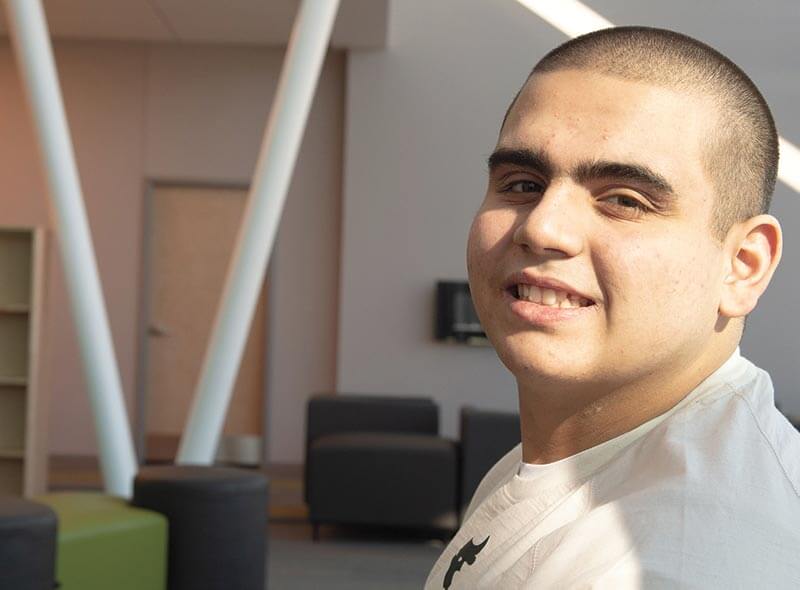
Sixteen-year-old Christopher is at a transitional period in his life. His mother, Ann, worries about where he fits into the mix of autism programming.
“It’s hard to find programs that are suitable for his age. I’d like for him to be social, but many group programs require kids to have similar needs,” she explains. Christopher currently attends Community Living Essex County’s weekend respite program, but it’s not enough.
In addition, Ann and her family live in Leamington, where there are few programs available to those with autism, and it’s challenging to bring him into the city for an hour or two in the middle of the day.
To take action and raise awareness in their community, Ann and her friend Paula LaSala-Filangeri, a speech and language pathologist, initiated what is now the 8th Annual Autism Awareness Walk at Seacliff Park (April 26). The two call themselves “The Blue Sisters,” as blue is the colour of autism awareness.
The walk will raise funds for Autism Ontario to bring programs to Kingsville, Essex, Harrow, and Leamington. The walk does a lot of good, but Ann says they’re just scratching the surface. There is more that needs to be done.
“Christopher is so loving, affectionate, outgoing, and social, which isn’t typical on the spectrum. He will make an effort to engage with everyone he meets, and he’ll know you for life.”
However, Ann still wonders, what happens when he becomes an adult? Ann isn’t sure how much longer their respite worker can stay with him, and if she wants support for him after 18 she has to start applying now because the waitlists are so long.
And, as with many families, further support is necessary, especially as he gets older and it’s harder to meet his needs. His unpredictable behaviour can still turn from loving to uncontrollable, and it takes a lot to get back to the beautiful side.
“We can all be dressed and ready to go to a family wedding that we’ve talked about for months, walk into the hall, and Christopher wants to turn around and go home. We think we can prepare him, but whatever we plan for, we have to expect the opposite.”
Ann wants Christopher to have as much independence to make decisions as he’s able to have, but it will require appropriate supports. “This is a reminder that there’s more than just the hub of Windsor. The county needs better access to more services.”
Boys are four times more likely to be diagnosed with autism than girls.
The Loud Families
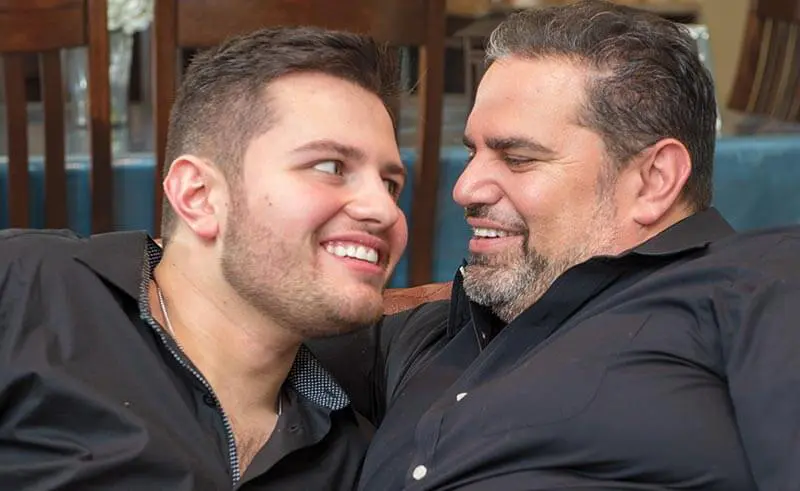
It never entered Rita’s mind that she would have to mourn the child she thought she had, especially since Giaci is still physically there. She has grieved every milestone missed, such as prom or not getting his license.
“Most parents live out their dreams through their children,” her husband John says. “And that came to a grinding halt. He’s not going to be the football player or athlete. He’s not going to do all the things we may have experienced as a young person.”
This is the first adjustment you make as a parent to a child with a disability. Rita and John had to step back and let go what they wanted for him, because Giaci is a simple guy—as long as he’s fed and well-rested, he’s happy.
This whole journey has been a rollercoaster, Rita says. And they’ve been riding it alongside him for 24 years.
It was a greater challenge to receive a straightforward diagnosis in the ’90s.
“The doctor told us he had a developmental delay, and you think, ‘that doesn’t sound so bad; it’s a delay so we’ll catch up,’ and you grab onto it. But you’re just prolonging, which isn’t beneficial to him.”
The autism diagnosis came when Giaci was three, and Rita and John soon learned that being a parent to a child with a disability meant being a lifelong advocate for them.
“Most children will develop into adults and advocate for themselves, but our role of advocacy never ends,” John says.
Years ago they were one of three Windsor families who were part of the Autism Class Action Lawsuit against the Ministry of Education, Ministry and Youth Services, and seven school boards in Ontario for failing to provide or fund Applied Behaviour Analysis/Intensive Behavioural Intervention. The government was cutting funding at age six.
“It was discriminatory. To me, this therapy was unlocking that inner world that he was imprisoned in. I looked into his eyes and could see that he had so much to say but couldn’t.”
During this uproar, Rita had gone up to Toronto to protest to Kathleen Wynne (then Minister of Education) and Deb Matthews (then Minister of Community and Youth Services), but just as it was Rita’s turn to speak at the podium, time was up.
I’m not done. They have to hear me, she thought. And not through a letter.
Rita wound up following Deb Matthews into the bathroom to tell her how these changes were impacting her child.
“It’s like you’re pushing my child off a cliff and we’re all falling down with him,” Rita explains. Impact or no impact, Rita knew she had to say it for herself. For Giaci.
Even though the parents didn’t win the lawsuit, the government did let go of the age discrimination. Once they did, Giaci was one of the first to be picked up by the Thames Valley Children’s Centre for ABA therapy. ABA programs are written to meet the skill needs of the individual learner, with the goal of helping them become more independent and successful in the short and long term.
Later, they decided not to send Giaci to high school and to continue ABA methodology at home. Rita had to hire the therapist and team of professionals under the Ministry of Youth Services regulations and every six months, when the contract for financing was up, she would have to reapply. As intense and stressful as it was, she saw it as her job to get him this help.
“My duty as a parent is not to do it for him, but to teach and empower him to be independent. Whatever his ability is, he can learn things just like everyone else. It will just take longer and happen in a different way,” she says.
Giaci continues to use ABA methods with current work placements at WFCU, the City of Windsor, custodial work, or for feeding the birds at the Ojibway Nature Centre.
“If you look at his programming, you’ll see that he is part of the community and experiences most things that young adults experience,” John adds. “We do as much as we can to make sure his life is as meaningful to him as it is for everyone else.”
Rita says that when you receive a diagnosis, you don’t realize how much is doable with the right mindset and education. She, John, and the family decided long ago that they wouldn’t take vacations without Giaci. Though it requires a tremendous amount of patience and teamwork, the five of them move as a unit around Giaci and hold on to get him there—no matter what. Many families wouldn’t go through this—or would assume they couldn’t—but at the end of the day, Giaci is the centre of their family and they would do anything for him.
Very rarely do others see this softer side of John, but those who see him with his son know that he will do anything to make sure Giaci feels supported—most dads don’t cuddle their 24-year-old sons. But John says that if that’s what his son wants, that’s what he’ll get.
The reason Giaci can do so much at age 24 with his family is due to early intervention and the ABA method. Rita says Ontario’s current government has destroyed years of advocating, hard work, and progress that was made. By privatizing the system, and with the continued delay in plans, families are at a standstill.
Rita is also a teacher with the Windsor-Essex Catholic District School Board, so she has an even richer understanding of the way the school system has been harmed. “Children learn ‘school readiness’ at early intervention. Now they aren’t prepared and it’s trickling into the school system. I’ve already seen the increase in anger, aggression, and violence towards parents. When you don’t have language, you can’t communicate your needs.”
Rita is constantly using her voice to work towards gaining services—not just for children with autism, but for all children. On the hard days where she wonders, Why my son? Why me? She thinks that maybe her “why” is to be an advocating voice, even when no one’s listening, and to work for services, even when it seems like they’re not coming. Because it’s her job.
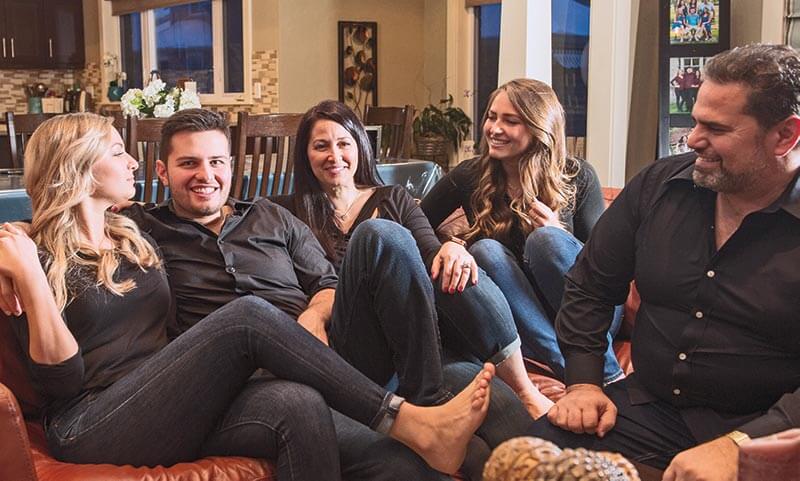
Early intervention can improve learning, communication, and social skills, as well as underlying brain development.
Autism Ontario
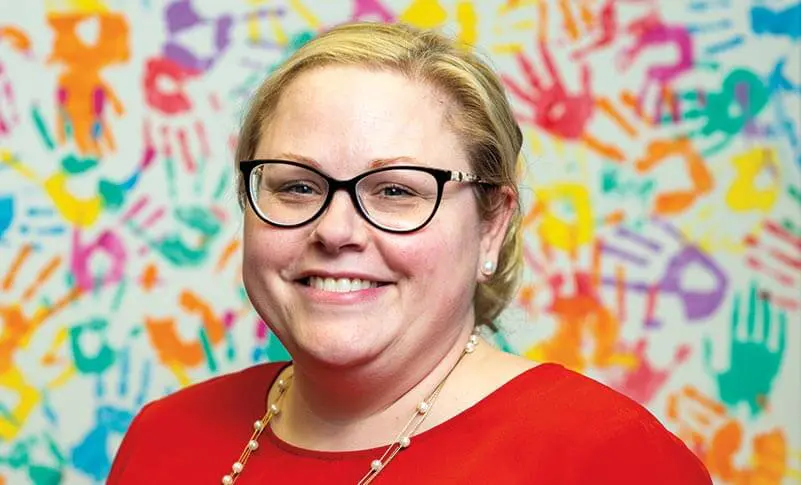
Because of recent changes in the Ontario Government, the work done at Autism Ontario is more important than ever. Livia Congi, Program and Chapter Manager at the Windsor Branch, says that things are bleak, but they are hoping to bring a bit of hope to the surface.
“We’re the largest branch in the province, and all of our support comes from donations. Windsor is strong and we’re able to provide programs and services through this community’s help.”
Livia is also a mother to a child with autism, so this is more than a job for her—it’s a passion. She is out in the community volunteering and cleaning at summer events to access more donations—she and the parents do all the building renovations themselves to keep the donations for programming—and Livia will always drive out to a parent if they are in crisis, whether they’re in Windsor or in Leamington.
“We’ll never turn people away. Very few of our programs have a fee, but if a family can’t pay, we’ll subsidize it. You don’t need a diagnosis; if you don’t know what’s wrong with your child, bring them here. We open up our programs on an as-needed basis.”
Since parents are often busy with their own children, AO relies on community volunteers like James Smith, who has been a constant in the organization for five years.

James comes from a nursing and special education teaching background with the Catholic board, so he offers a multitude of assets to families, including his award-winning knowledge of technology in the classroom. “Many families come in overwhelmed with the technology available,” James says. “I’ve experimented with every app out there and have seen the benefits. I’m here to talk to families, get them on board, and show them how easy it can be to get a schedule or routine on the phone or Chromebook.”
James came into AO as an outsider—after attending workshops and educating himself, he is now a true part of their family. He even brings his wife and twin daughters along with him when he volunteers. “If we get to them that young, we can learn to notice each other’s differences and be okay with them. They may not understand, but we can all work together to help them understand.”
Autism Ontario offers workshops for children and adults, and even facilitates workshops for parents, families, employers, and community members to learn about autism and its strengths.
You can find all programming information on their Facebook page: Autism Ontario Windsor-Essex Chapter.
